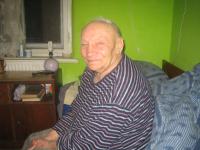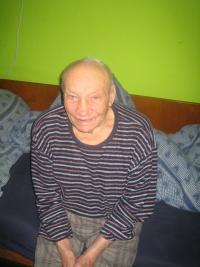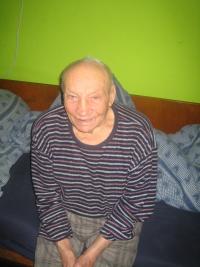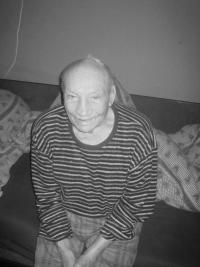An SS man came up, took the Russian’s pickaxe, and smashed his head in

Download image
Václav Blažek was born on 14 September 1920 into a farmer’s family in Raškovice, Pardubice District. After completing primary school in Heřmanův Městec he trained as a bricklayer. He helped construct the district court in Pardubice and the barracks in Popkovice. After Bohemia and Moravia were occupied, he was put to rebuilding the Pardubice airfield to suit the needs of the German army. In 1941 he was summoned to forced labour in the Reich. He worked in factories in Stuttgart and Friedrichshafen in south Germany. In 1942 he was allocated to the Buchenwald concentration camp, subsequently to Camp Dora, where he constructed an underground factory for the production of V1 and V2 rockets. The end of the war found him in the Bergen-Belsen concentration camp in the north of Germany. Upon returning to Czechoslovakia he was employed by the railways, and he remained there until his retirement.



